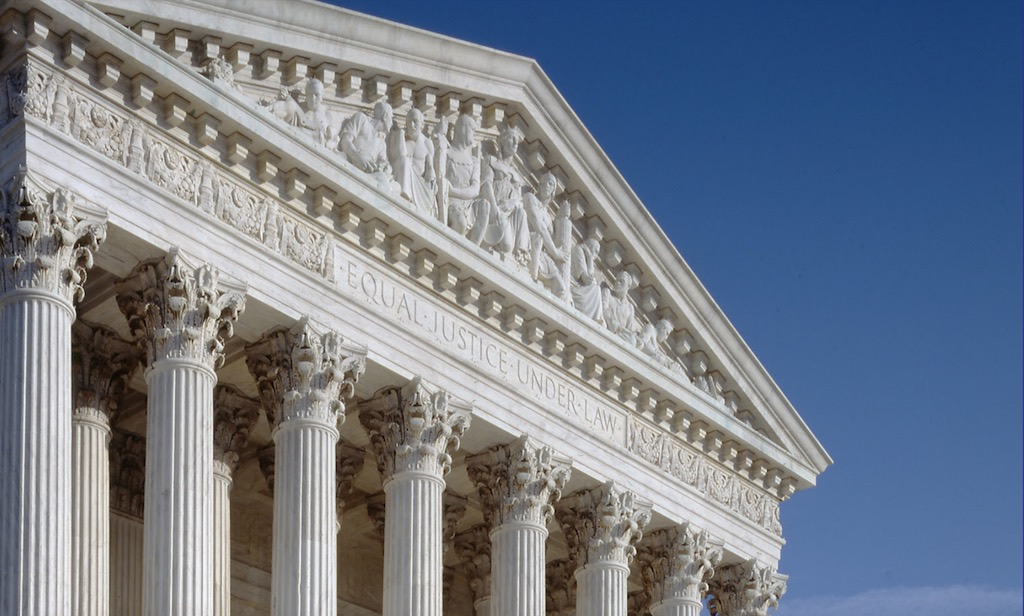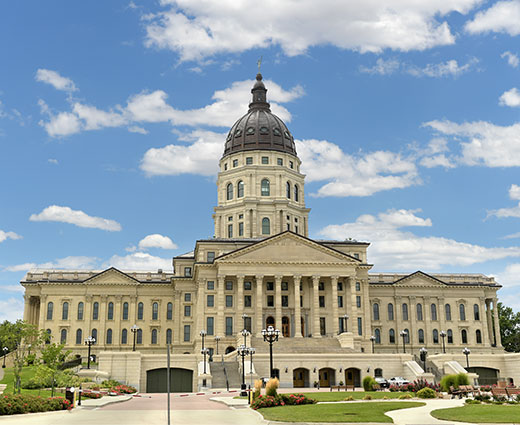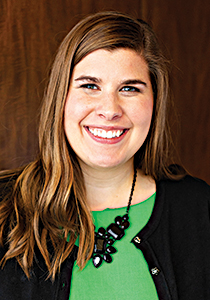Kansas Family Voice knows that the best education system is one that gives children a wide-open future and fuel to explore God’s calling in their lives, under the loving and protecting guidance of their parents.
Parents know their children best and are in the best position to make decisions about their children’s education. Kansas Family Voice advances policies that provide more opportunities for parents to build an education best suited to meet their children’s unique needs. This means we support legislation that enhances school-choice opportunities for families. A future full of choices for children needs a present full of options.
A school environment should not be harmful to a child. It should not tell a child that her faith isn’t welcome in the classroom. Parents are the key to ensuring that a child’s educational environment does not undermine the family’s faith — or their child’s future. They have the right to be informed about what’s happening in their children’s schools, and what curriculum their children are exposed to. We advance policies that empower parents to have decision-making power when it comes to their children’s classrooms.

THE STORY OF EDUCATION IN AMERICA
For the majority of the first century of America’s existence, a large portion of American children were educated at home or in local schools run by their community.
In the early 20th century there was a push to ensure that everyone received the same basic education. Mandatory education laws grew in popularity in state legislatures with the goal that everyone would be able to read. While this goal was a good one, education moved further away from the family and local community. The centralization of education increased throughout the 20th century, and in 1979 the national Department of Education was officially made an independent cabinet agency.
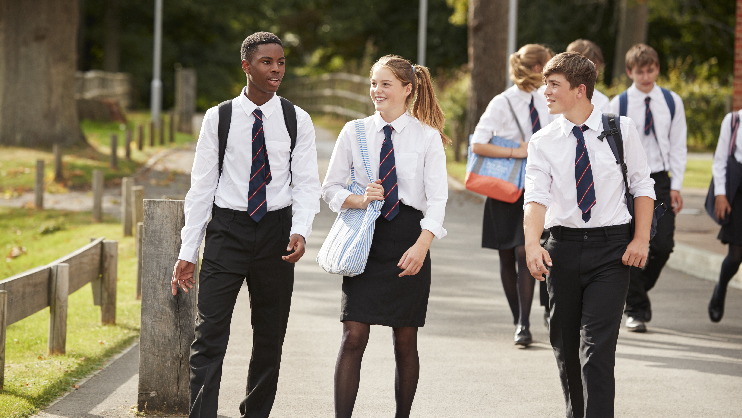
EXPANDED CHOICE
As education became more nationalized, parents began to seek alternative education methods. Religious schools, primarily Catholic schools, have been around for decades, but the number of both nondenominational religious schools and schools associated with Protestant churches sharply increased in the 80’s and 90’s. Similarly, parents began to advocate for laws to ensure that they could homeschool their children. Overall, as the government pushed to nationalize public education, more and more parents began to look for educational models closer to home.
MORE SCHOOL CHOICE IS GOOD
Parents should be empowered to provide the best education for their children whether it is at public, charter, private, or home school. Kansas Family Voice and our state-based allies have worked tirelessly to increase school choice for the benefit of all students.
Below is a summary of the educational options now available to parents, though not all are available in all states.
PUBLIC SCHOOL
Public education, regulated by state and federal government, is available to all and has been used for good in many situations. Some states realizing the different needs of students have begun to offer options such as online educational programs, Advanced Placement courses, or dual-enrollment classes that give students a head start in college. Public school districts have also started to offer alternative high schools for trade-oriented students.
Even as public schools offer more choice, families are seeking alternatives because the public-education system exposes their children to ideas and opinions — imposed by the government — that are contrary to their family’s worldview. Concerned families desire to have a voice and be more involved in their child’s education.
HOME SCHOOL
The modern home school movement started as a reaction to the nationalizing of education. Families sought to take back their children’s education. Regulations on homeschooling vary by state, but today it is legal to homeschool a child in every state in the nation. It is estimated that almost 2 million students are educated at home. Homeschooling provides a family with an almost endless number of possibilities to tailor their child’s education to their child’s needs.
Co-ops allow students to take some classes at home, some in a private school, and even sometimes in a public school—depending on individual needs and goals. In some states, homeschool students are able to participate in extracurricular activities at public schools. Laws that give homeschool students the ability to access public extracurricular activities are known as Tebow Laws, named after Heisman trophy winner Tim Tebow, who utilized a similar law in Florida to play football in high school.
SEE IF YOUR STATE GIVES HOMESCHOOL STUDENTS ACCESS TO PUBLIC SCHOOL ACADEMICS AND ACTIVITIES.
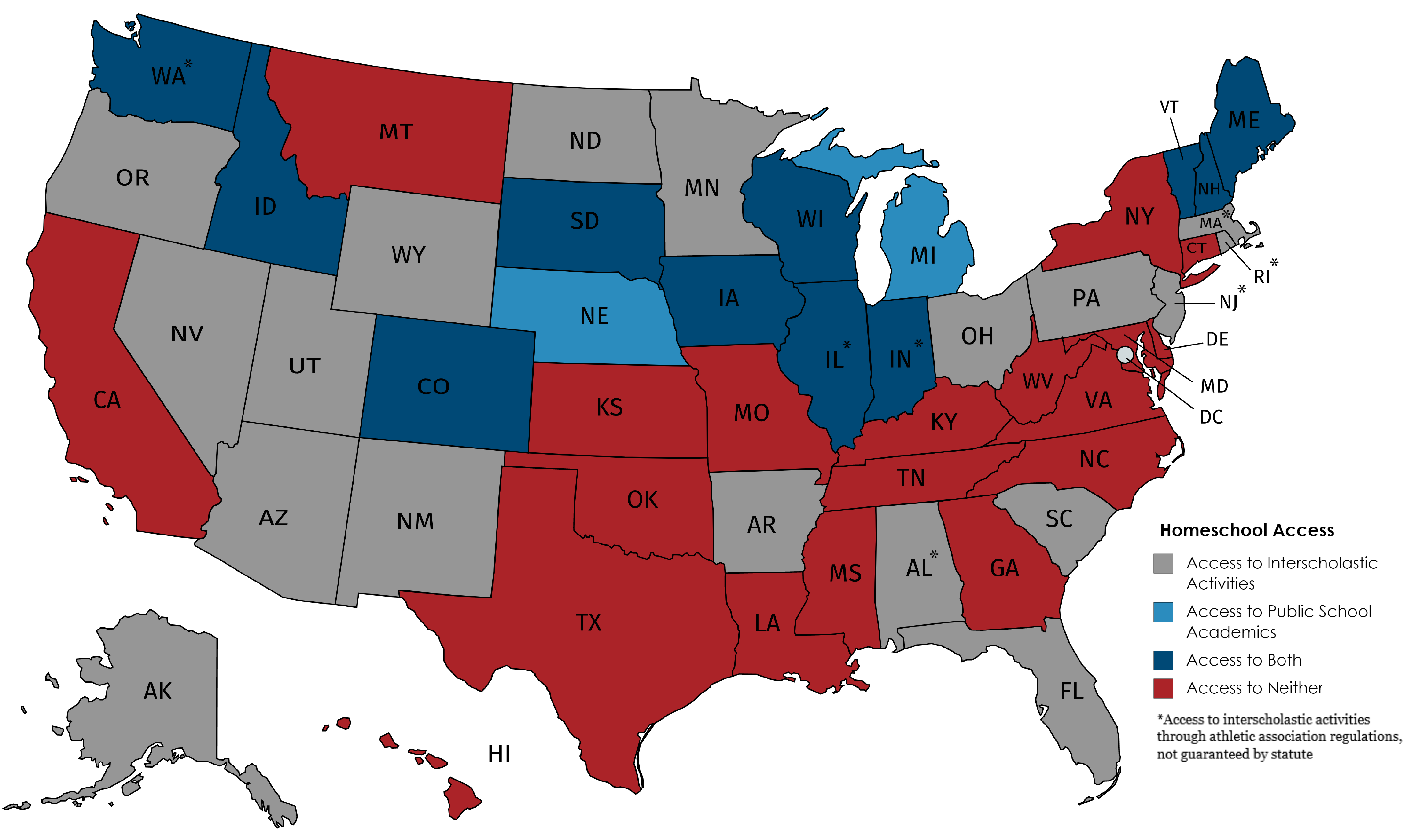
CHARTER SCHOOL
Even in the public-school system, people began to realize that the one-size-fits-all method does not work for every child. Charter schools have begun to increase in number across the United States, providing parents and children options and expanded opportunities. A charter school does not charge tuition and is publicly funded. However, it operates independently from the public education system. Many of these charter schools have a particular educational focus or curriculum that is unique from nearby public schools.
PRIVATE SCHOOL
Private schools have also grown in popularity. Some private schools are associated with a particular church, while others are nonsectarian, such as a Montessori School or a traditional private school. These schools are often more expensive than other forms of education. Many parents may need financial assistance in order to enroll their children in this sort of education. Many programs have been created in order to assist parents in this endeavor.
PAYING FOR EDUCATIONAL CHOICE

EDUCATION SAVINGS ACCOUNTS
Education Savings Accounts (ESA) allow parents to receive a portion of their tax dollars back. The parents can then use the funds in the ESA to pay for certain expenses such as school tuition at a non-public school, homeschool curriculum, online education, or tutors. Six states — Arizona, Florida, Mississippi, North Carolina, Nevada, and Tennessee — have an ESA program. Some states restrict their ESA program to special needs students, bullied students, students from military families, or students from failing schools.

SCHOOL VOUCHER PROGRAMS
School-voucher programs allow parents to pay for tuition at a non-public school. Many of these programs are intended to be used by low-income students or students in failing schools. Vouchers are different than ESAs because they are normally directed at tuition cost only and are designated to be spent at a specific school. Fifteen states have voucher programs. The states are Arkansas, Florida, Georgia, Indiana, Louisiana, Maryland, Maine, Mississippi, North Carolina, New Hampshire, Ohio, Oklahoma, Utah, Vermont, and Wisconsin.

TAX CREDITS & SCHOLARSHIPS
Individual Tax Credits allow parents to receive a credit on their state taxes for their children’s educational expenses. This helps to ease the burden of paying for a public-school alternative. Five states have these types of programs.
Tax Credit Scholarships allow an individual or a business to receive credit on their taxes for donating to private nonprofits that provide students with scholarships to private schools. Eighteen states have tax scholarship programs.
RELIGIOUS FREEDOM IN EDUCATION
Religious expression in schools, and especially any indication that the government might be funding religious expression in education, has been attacked in the courts.
FUNDING OF RELIGIOUS SCHOOLS
As part of our nation’s historic anti-Catholic bias, in 1875 James Blaine introduced a proposed amendment to the Constitution to prohibit government from funding religious schools. Thankfully, the anti-religious freedom “Blaine amendment” failed at the federal level, but similar language has been adopted by 37 states. More recently, legislators have questioned the constitutionality of education-savings accounts, vouchers, tax credits, and other attempts to help parents choose the best options for their children — thankfully the policies advancing school choice have continually been upheld by the courts.
Everson v. Board of Education
Some states are trying to reduce the age of minor consent so that parents are eliminated from a child’s healthcare decisions.
ACSTO v. Winn
Some states are allowing teen girls and younger to get abortions without a parent’s knowledge or consent.
Mueller v. Allen
Hospitals are giving doctors the right to remove life-sustaining treatment from children without parental notice or consent.
Trinity Lutheran v. Comer
Courts are removing children from the custody of their parents when parents object to gender transition for their child.
RELIGIOUS EXPRESSION IN SCHOOLS
Many atheist groups have worked to remove all expressions of faith in public schools citing the so-called “separation of church and state”.
Their efforts threaten the right of teachers and coaches to pray or discuss their faith at school. They also threaten the right of students to carry their Bibles at school, discuss their faith, or form religious groups that meet on school property.
These outward expressions of faith arise from a teacher’s, coach’s or student’s personal relationships with Jesus Christ. Yet, they are being told that these natural expressions violate the Constitution—often an assertion that no legislation or court opinion has ever stated. When, in fact, what is being violated is their religious liberty.
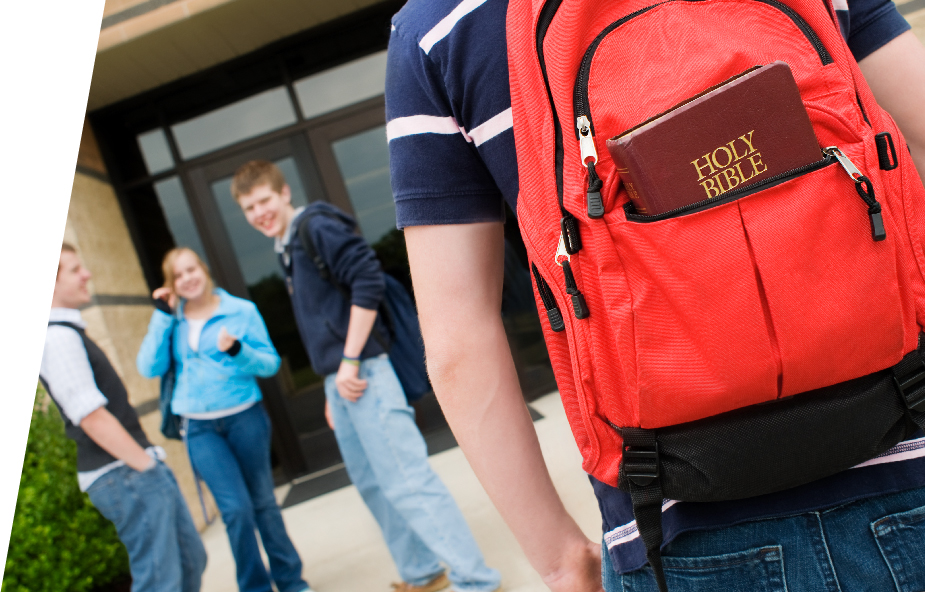
FAITH AND FREEDOM IN EDUCATION
Education legislation we were involved in during the 2019 legislative session.
ANTI-BULLY “HOPE SCHOLARSHIP”
Called the “Hope Scholarship” and modeled off of an existing law in Florida, this bill would allow bullied students to receive funds to attend a private school of their choice in order to find a safer and better school environment.
Kansas H.B. 2150
Let Freedom Ring!
Tomorrow, we celebrate our nation’s 249th birthday! This is the day that our nation declared its independence from England, stating that our rights don’t come from a king but from God. This idea of self-governance under our Creator is a revolutionary idea. It is why it is so uniquely crucial that American citizens be guided
SCOTUS WINS – WITH KANSAS LEADING THE WAY
Today, the U.S. Supreme Court ruled in a 6-3 opinion that Texas’s age verification law for pornographic websites is constitutional. Free Speech Coalition v. Paxton was one of the most closely watched cases due to its implications for more than 20 similar laws passed nationwide. Our sister organization, Kansas Family Foundation, alongside our friends at
What become law in 2025
The 2025 Session has officially wrapped up. It’s important to look back at all God has done this session. Our biggest win this Session was overriding the Governor’s veto and Help Not Harm immediately becoming law! Finally, after three years we were able override Governor Kelly’s veto of Help Not Harm. Legislator after legislator that
Time Flies
They say time flies when you’re having fun. I’m not sure if everyone would consider the legislative session “fun” but time is sure flying. It’s hard to believe there is only one more full week of the 2025 Legislative Session. This week concluded the last regular week of work before conference committees meet next
KFV 2025 Legislative Agenda
It’s a new year and with a new year comes a new legislative session in Kansas and a fresh agenda for KFV. For those of you new to the process, most state legislators are part time legislatures, meaning they meet for set number of days for less than half the year. Originally the federal legislature
KFV Exciting 2024 Agenda!
It’s a snowy and frigid week in the Sunflower State. The Chiefs are in the playoffs. And, of course, the 2024 Legislative season is off to a roaring start. We started the session this year by taking up a resolution in support of Israel and condemning Hamas for its actions on October 7th. It passed
Does Leadership Still Matter in Politics?
It’s a weird time in American politics. In some ways unprecedented. In other ways, there is nothing new under the sun. It seems like everywhere we look our leaders are not living up to their calling to lead well publicly or privately. Their policies seem driven more by polls than by principle. Their family lives
First Day of Veto Session – Born Alive becomes law!!!
On the first day of veto session, the House and Senate took on over a dozen of Governor Kelly’s vetoes. Most have only been through one chamber at this point, but in exciting news, both Chambers overrode the veto of the Born Alive Infant Protection Act! It now becomes law! You can see how your
2023 Legislative Session: Victory for Pro-Family Policies
At 10:18 Friday night the last chamber of the legislature adjourned sine die. Both chambers quickly passed the budget which they are constitutionally mandated to pass before they go home every year. This means unless Gov. Kelly vetoes the budget, and we are called into a special session, the 2023 legislative session is done! And
A New Year. A New Legislative Session.
It’s a new year and a new legislative session in Kansas. On Monday, the new statewide, house members, and senators will be sworn into their new positions. Elected officials’ families will attend. A lot of pictures will be taken. Everyone will be trying to catch up after not having seen each other since last May.
SPEAK UP
We have the right, privilege and obligation to speak into every aspect of our government. Our Action Center makes it easy for you to do that.

